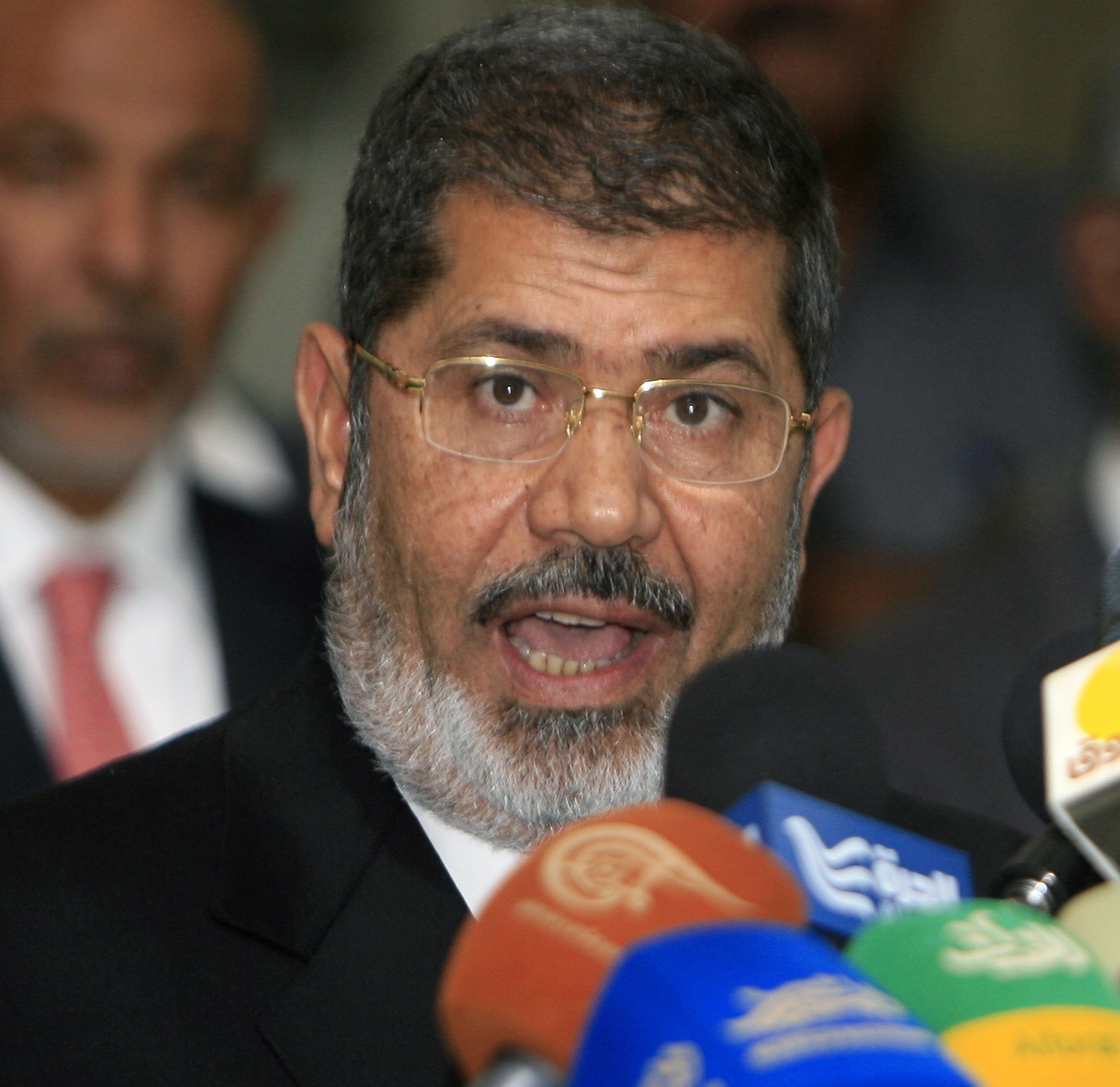
(AFP PHOTO / KHALED DESOUKI)
On Sunday the case against three Al Jazeera English journalists and 17 other defendants was postponed to Thursday—the tenth delay in the case—and bail was denied as technical experts for the prosecution took to the witness stand to analyse audio and video presented to the court as evidence.
Dubbed the “Marriott Cell” by the prosecution, Al Jazeera bureau chief Mohamed Fadel Fahmy, correspondent Peter Greste, and producer Baher Mohamed are accused of spreading false news to harm Egypt and creating a “terrorist media network”. Fahmy and Greste were arrested at the Zamalek Marriott hotel on 29 December after police raided two hotel suites the journalists used as a base of operation. Mohamed was arrested the same evening from his home in suburban Cairo.
In Sunday’s session, the journalists’ defence attorneys cross-examined the three independent audio-visual experts tasked by the prosecutor to examine footage allegedly obtained from the defendants’ laptops and hotel rooms.
Defence attorney Khaled Abu Bakr questioned the authenticity of the experts’ testimony, citing that their written reports were all identical, reported state-run Al-Ahram. Abu Bakr went so far as to accuse the witnesses of perjury.
“It is clear that the witnesses’ testimony was rehearsed,” Mohamed Fadel Fahmy’s brother Adel Fahmy told the Daily News Egypt, adding that the judge has shown bias for the prosecution.
Adel Fahmy said that it was evident his brother was agitated by the testimony, several times shouting outbursts from the courtroom cage in which he was held with nine other prisoners. Mohamed Fadel Fahmy identified one of the witnesses as being present at the time of his arrest, questioning his neutrality as an independent expert.
The other defendants to appear in the courtroom were students who claim to have not been acquainted with the Al Jazeera journalists before the trial, while 11 others are being tried in absentia.
Greste, an Australian, is one of four foreign defendants named in the case. The other foreign defendants are Sue Turton and Dominic Kane, who have previously worked for Al Jazeera in Cairo, while Dutch journalist Rena Netjes has never worked for Al Jazeera but met with Fahmy at the Marriott hotel. She was allowed to leave Egypt following discussions between the Dutch embassy and the foreign ministry.
In a separate incident, Al Jazeera Arabic journalist Abdullah Elshamy was arrested over nine months ago at the violent clearing of the pro-Mohamed Morsi sit-in at Rabaa El-Adaweya Mosque. He has yet to be brought up on formal charges. Elshamy has been on hunger strike for 132 days, and recent medical tests revealed that his health is in critical condition.
Last week Egyptian state media reported that Rasha Gafaar, a journalist for Al Jazeera Mubasher Misr—the network’s satellite station focusing solely on Egypt—was arrested in Port Said for “illegally broadcasting videos to Al Jazeera… in return for an amount of money”.
According to Al Jazeera spokesman Osama Saeed, Gafaar is “neither an employee nor a freelancer for Al Jazeera” and has no connection to the network.
The arrests and detention of journalists in Egypt has garnered international ire. The US State Department called the charges against the Al Jazeera journalists “spurious”, while the White House, members of the US Congress, the European Union, the United Nations and the Australian government have all expressed their unequivocal condemnation, and called for the journalists’ release. People around the world have staged protests in solidarity with the journalists, demanding their release.
Egypt has experienced an increasingly severe crackdown on voices of dissent. The Committee to Protect Journalists has ranked Egypt the third most dangerous country for journalists after Syria and Iraq. The country ranked 159th out of 180 in the 2013 Reporters Without Borders “Press Freedom Index”.
In previous interviews, Al Jazeera said it no longer has staff members based in Egypt.


